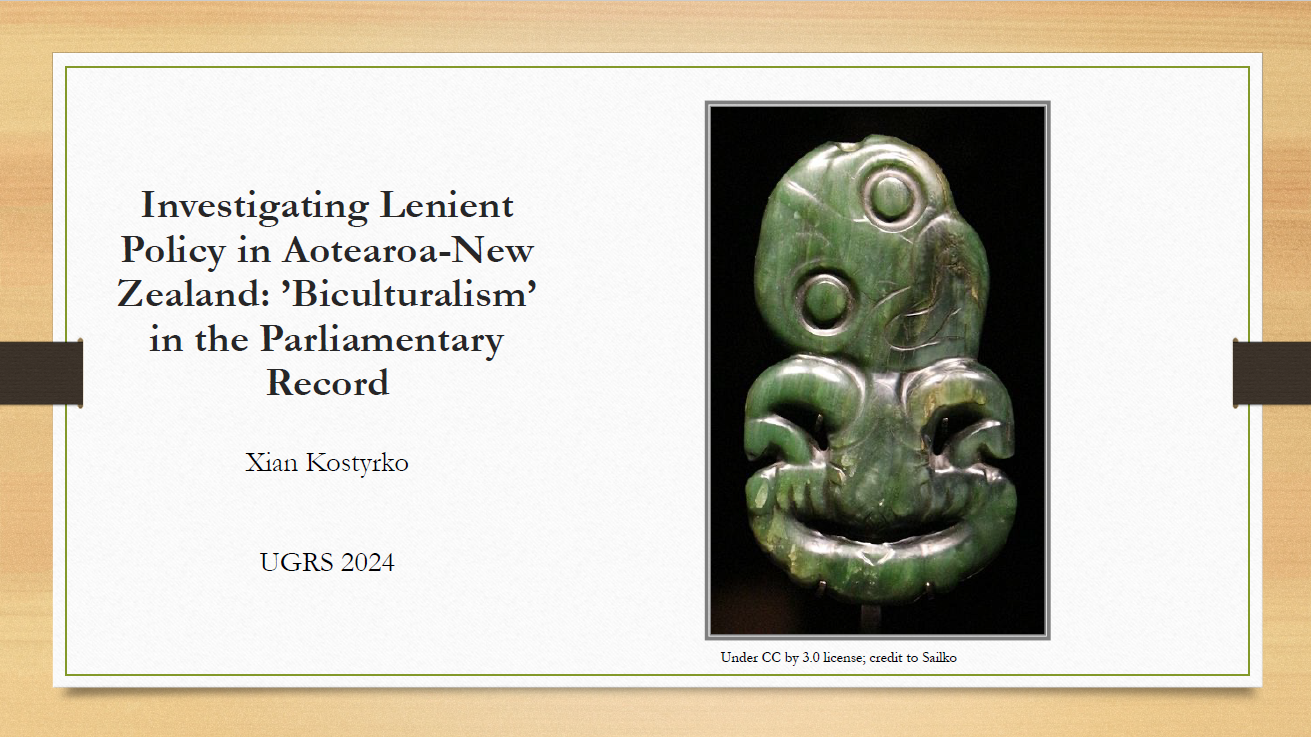Investigating Lenient Policy in Aotearoa-New Zealand: ‘Biculturalism’ in the Parliamentary Record.
Main Article Content
Abstract
While aware of the horrors of British colonialism, many twenty-first century Māori first and foremost identify as New Zealanders, rather than as solely Indigenous. A bicultural state implies the acceptance of two distinct cultures; however, scholars of the Southeast Pacific fail to explain the trend. The beginning of this phenomenon lies behind the discussion between Māori parliamentarian, Sir Apirana Ngata, and Prime Minister Gordon Coates, which illuminated a certain lackluster acquiescence of colonial power. While in debate on the nature of an inquiry into the confiscation of native lands, Ngata pleaded that the Indigenous Māori had a special relationship to their land, not only in wealth but in cultural identity. Coates agreed, initiating a significant relationship which continued a movement of colonial condescension while kickstarting cultural acceptance of Māori at a systemic level. Under half-a-century earlier, the island nation had been subsumed by a violent revolt against land dispossession, raising the activist-leverage of Ngata’s plea. Utilizing portions of my knowledge of the Māori language I will investigate the trend towards the recognition and promotion of Māori culture from the embers of violent conflict. Using Aotearoa’s Parliamentary archives, I will review legal documents to pinpoint the meaning of colonial oppression, biculturalism, and the importance of language in a nation set aside from the world stage in colonial trends and geography.
Article Details

This work is licensed under a Creative Commons Attribution-NonCommercial-NoDerivatives 4.0 International License.
References
Ngata, A. Confiscation of Native Lands: Report of the Commission of Inquiry. New Zealand Parliamentary Debates, v219. 639-644. 1928, September 28.
Harris, Aroha. “Reconciliation, Representation, and Indigeneity: 'Biculturalism' in Aotearoa New Zealand.” Journal of New Zealand Studies, no. 24 (2017): 90–92. https://doi.org/10.26686/jnzs.v0i24.4060.
Boast, Richard. Buying the Land, Selling the Land: Governments and Māori Land in the North Island 1865-1921. 2008. Wellington: Victoria University Press.
Hawksley, Charles, and Richard Howson. “Tino Rangatiratanga and Mana Motuhake: Nation, State and Self-Determination in Aotearoa New Zealand.” AlterNative: an International Journal of Indigenous Peoples 7 no.3 (2011): 246–57. https://doi.org/10.1177/117718011100700305.

